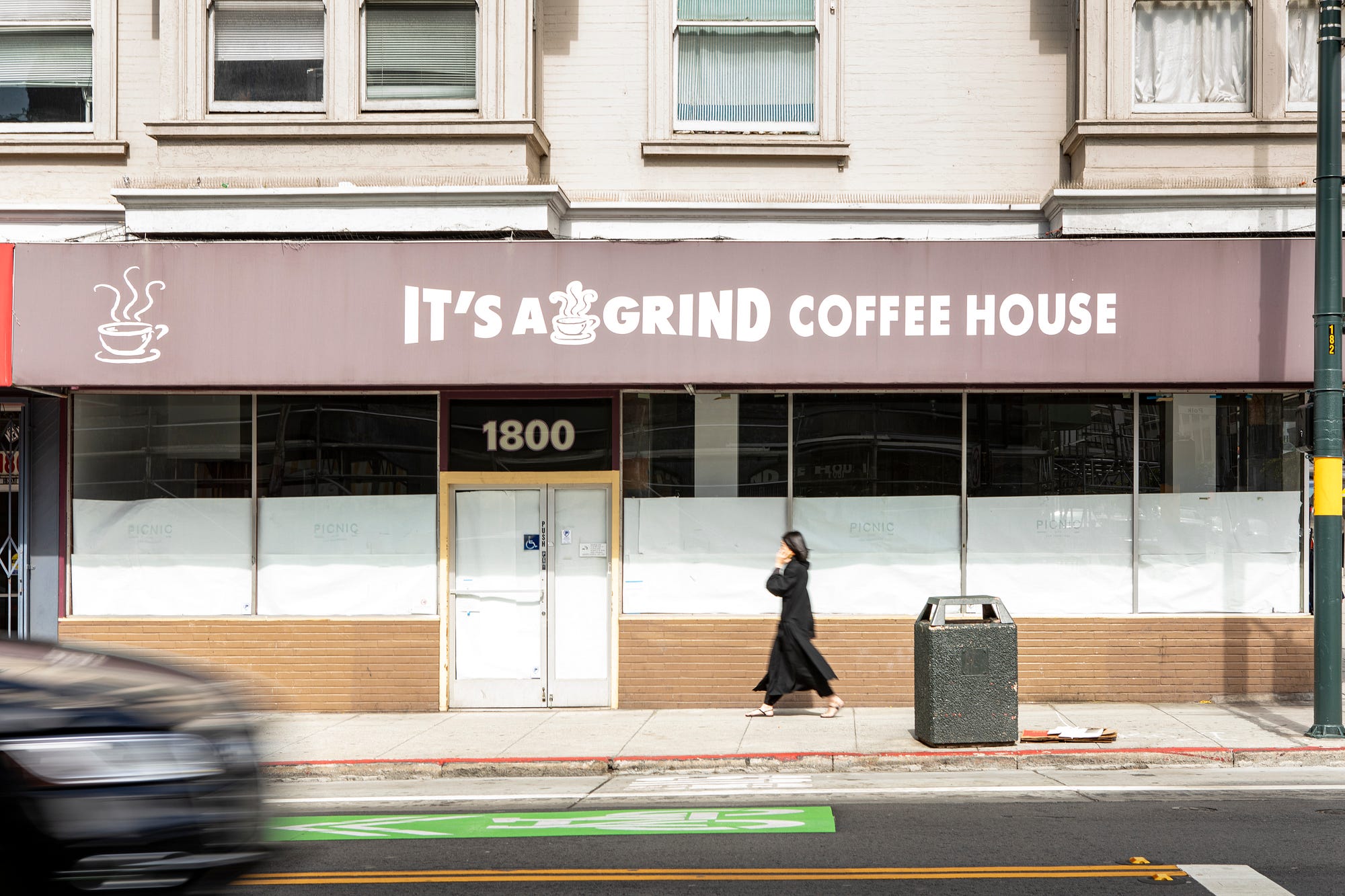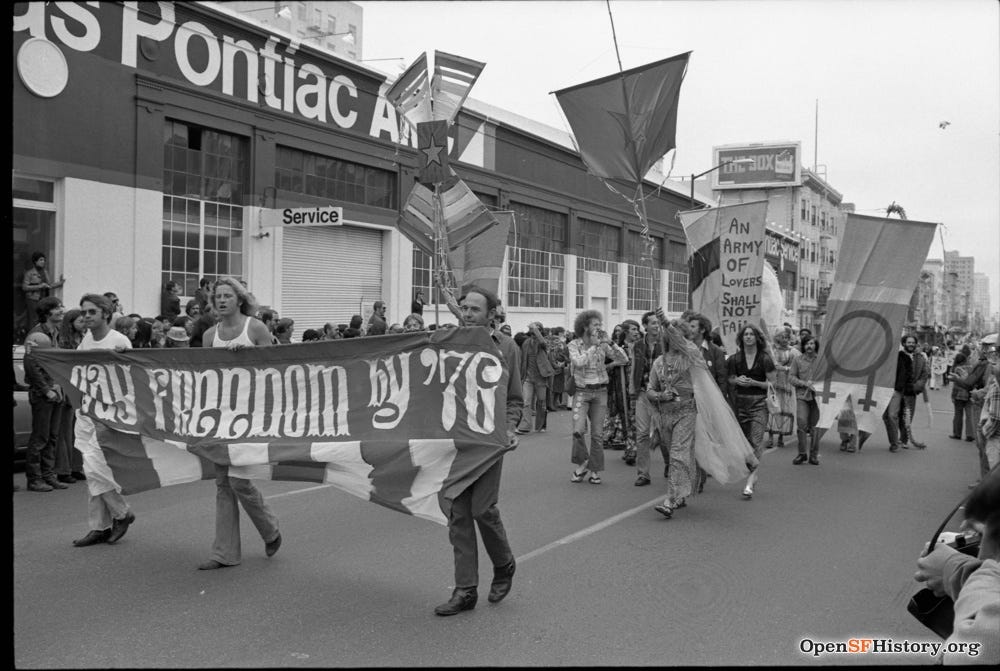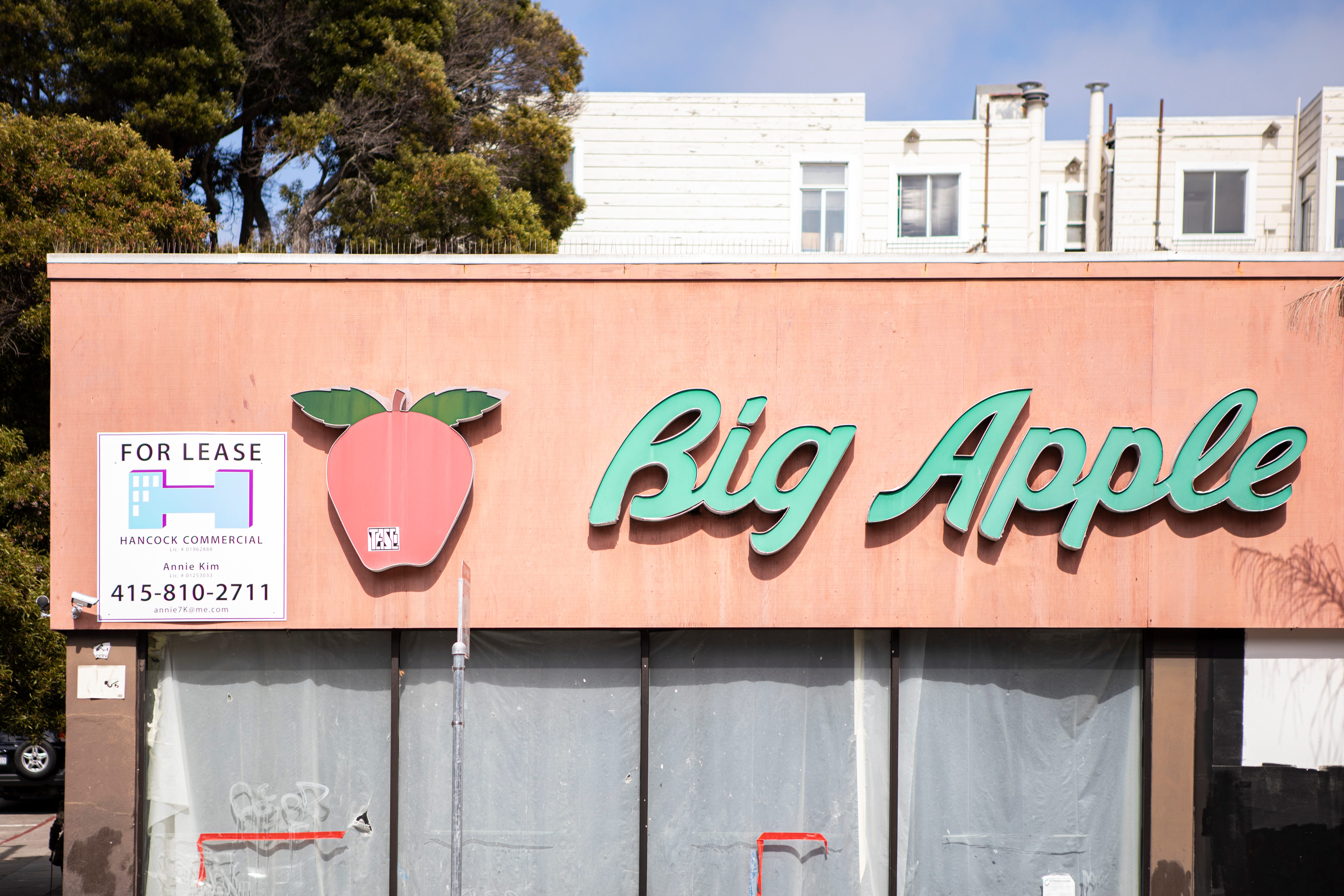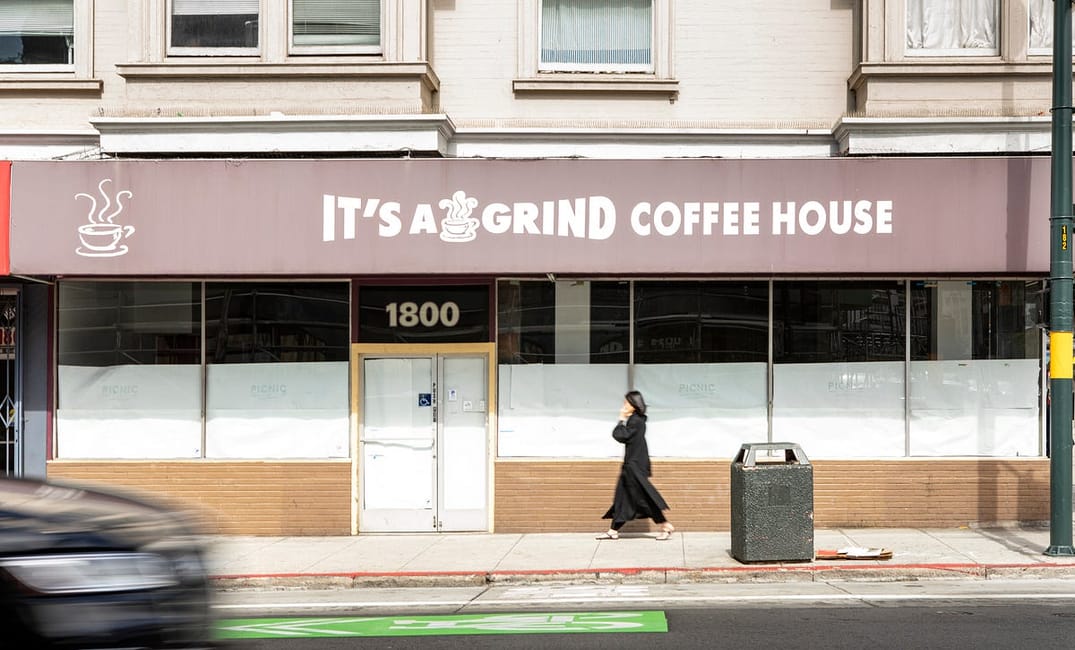
The year was 1972, and San Francisco was hosting its first Gay Pride Parade on Polk Street — the city’s oldest gay district. The parade attracted more than 50,000 people who came to celebrate Pride for the very first time, laying the groundwork for LGBTQ parades to come.
Every year since, San Franciscans have promenaded through the streets for the renamed SF Pride, which now takes place on Market Street. It’s the largest Pride parade in the country, attracting more than one million people from around the world. But the path that Polk Street forged for the LGBTQ community remains central to the celebration’s history, which longs not to be forgotten.

Like many streets in this city, Polk Street has inevitably surrendered to new developments, new businesses, and newcomers. The majority of the queer, working-class, bar-owning, sex-worker community is no longer there.
Once a vibrant street of gay-owned businesses, Polk Street has seen a ripple of vacant storefronts as it struggles to both reinvent itself as a commercial destination and preserve its historic and cultural value.
Back in Polk Street’s Glory Days
Before the Castro District existed, LGBTQ business owners settled and thrived on Polk Street throughout the ’60s and ’70s. The first gay business association in the country was the Tavern Guild of San Francisco, formed in 1962. Soon after, more than two dozen gay bars and businesses sprouted up on Polk Street, earning San Francisco its reputation as the nation’s gay mecca, a place where runaway kids from around the country could find a new sense of home and belonging.

Coy Ellison, a longtime resident of the neighborhood, was one of them. For the past four years, Ellison worked as a bartender at the Gangway, the oldest gay bar in California, which shut down over a year ago to the dismay of its loyal customers and friends. Before bartending, Ellison was a customer of the bar, where he attended elopements hosted before gay marriage was legalized, for 40 years.
“Unfortunately, there’s no bar like that left in the city,” Ellison told me during a visit to his home in Polk Gulch. “Every organization, every group was represented on the wall from historical movements. It was a living museum.”
The Gangway has been replaced with a new concept bar—Young’s Kung Fu Action Theatre & Laundry––that screens “classic kung fu” movies. Ellison keeps remnants of the former bar inside his home, including a buoy labeled with the establishment’s name and a map of all the gay-owned shops that once occupied the area. Other former customers of the Gangway have also salvaged some of the bar’s displays.
“There were a huge number of gay bars and trans bars. Plus, gay-owned clothing stores and antique stores would make under-the-table work for kids who ran away from home,” said Joseph Plaster, a PhD candidate focusing on queer theory at Yale University and whose exhibition, Polk Street: Lives in Transition, compiles more than 70 oral histories of runaways in the Polk Gulch area, documenting the neighborhood’s changes from a gay epicenter in the ’60s and ’70s to a changed environment by the mid-2000s.
The Future of Polk Street
The street culture that once existed here has transitioned to buzzy oyster and wine bars. Polk Street permeates a vibe of unwanted space. Take a stroll from Broadway Street to California Street, and in just seven blocks, you’ll see at least seven storefronts that remain empty.
Recent victims to the city’s high rental prices include Blur Bar, which retired from being the veteran dive bar in Polk Gulch after 15 years in business. No one has moved in since it shuttered in January. Up the street, It’s A Grind coffee house closed in 2016; its windows are still wrapped in construction paper, signaling its vacancy. Then, there’s the space where Tonic bar was on the border of Russian Hill, abandoned over a year ago and still vacant.


These barren properties are usually the result of rising rents and landlords who sit on their properties for months, even years, holding out in hopes of scoring the highest-paying tenant.
“What we’re observing in our section of Polk Street is growing vacancy bracketed by two large and very obvious vacant buildings,” said Iana Dikidjieva, District Coordinator of Discover Polk.
For example, the old Lombardi Sports store has been the largest vacant space on Polk Street, for five years. Last year, it was set to become a new Whole Foods 365, a sore subject for residents in the Polk Gulch / Nob Hill community. The Planning Commission ultimately rejected the proposal because the neighborhood was torn over the need for affordable housing versus a local grocery store.
The old Big Apple Grocery Express has also been vacant since 2014. A new concept grocery store / food market called the Bazaar was supposed to replace it, but that was over two years ago, and there’s been no new progress.
“We feel that those highly visible landmarks having been vacant for years contribute significantly to the issue,” Dikidjieva said.
She says some of these empty storefronts are in “red tape limbo”––meaning a business is paying rent, but the process for getting permits and other necessary approvals has taken over a year.

“When entire half blocks are vacant for years, the implicit message, from both landlords and the city, is ‘We’ve given up until something changes,’” said Demitri Tarabini, who’s lived on Polk Street since 2014. “Neither the city nor landlords are doing anything, so these properties languish.”
In March, the San Francisco Board of Supervisors passed legislation to crack down on landlords who fail to occupy building space by charging them a $711 annual vacancy fee, giving them only 30 days to register and pay the fee. Annual building inspections will also become mandatory, according to the board. Similar measures have been taken before in other neighborhoods, such as North Beach and the Castro, which have also seen a surge in storefront vacancies. But now it’s up to the city to actually enforce these rules.
In hopes of preserving neighborhoods where gay history prevails, the San Francisco Planning Department recently announced a new initiative: the Citywide LGBTQ + Cultural Heritage Strategy. The Polk neighborhood associations wanted to preserve Polk Street as an LGBTQ Cultural Heritage District, but instead the Castro was designated as one first. Erica Waltemade of the Lower Polk Community neighborhood association said they still hope to get Polk Street to become a cultural heritage district.
What’s Left of Polk
While many mom-and-pop shops and the majority of LGBTQ businesses and bars are gone, some gems still remain that you can support:
- Brunch or dine at Brenda’s French Soul Food. The lesbian-owned restaurant has historic ties to the neighborhood, and yes, the long wait is worth it. 652 Polk Street
- The Cinch Saloon is San Francisco’s second-oldest gay bar, and it’s one of the only historic gay bars that has survived. 1723 Polk Street

- Eat your way to the Hall of Fame of fastest donut eaters at the 24-hour hero, Bob’s Donuts. You can smell the chocolate-glaze aroma of the 1960s establishment all the way down Polk Street. 1621 Polk Street
- Peruse an extensive collection of new and used books at one of the last remaining family-owned bookstores in San Francisco, Russian Hill Bookstore. 2162 Polk Street
- Get a late-night slice. Victor’s Pizzeria is the only restaurant on Polk Street that’s open past midnight on Fridays and Saturdays. 1411 Polk Street
New spots on the strip
- Vegan Picnic, a new American-deli focused on comfort food is relatively new to the Polk-area. 1323 Polk Street
- Now that Hammertime Gastroclub and Beer Garden recently closed, a new BBQ joint called “Polk Gulch BBQ” is expected to take its spot soon. 1735 Polk Street
- Fiorella, a pizza-favorite, opened a sequel restaurant earlier this year with an expanded wine list and more pasta dishes. 2238 Polk Street
- Catch the latest monthly sidewalk block party at Only on Polk Summer Saturdays, featuring music, pop-ups, food, and more.
The future of Polk Street might be unsure. But even if the vicinity doesn’t become a cultural heritage district, longtime residents like Ellison don’t plan on dwelling on the past. He says that regardless, he’s devoted to documenting and preserving the history of Polk Street for San Franciscans of the future to know and see. And while Polk Street has changed in many ways, there’s still vacant space waiting for a new wave of LGBTQ businesses to revitalize it.







